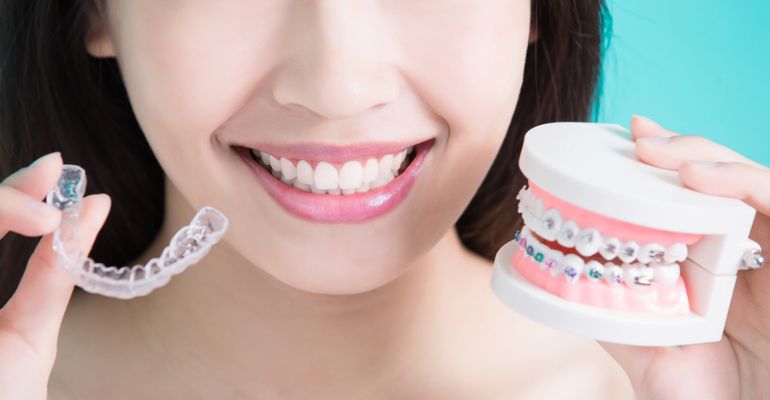
Caring for Your Dental Implants: Maintaining Long-Term Success
Dental implants are a long-term means of replacing missing teeth, carrying advantages in both aesthetic and functional terms. They will not only restore your smile but also help with chewing efficiency and your overall oral health. Unfortunately, just like natural teeth, dental implants also need basic care so that they can remain in good condition in the long run. That's why in its simplest form good oral hygiene for implants becomes highly significant for prevention of peri-implantitis and for supporting long-term success of the dental implant. This blog will also share basic knowledge on dental implant aftercare along with few tips that will help you prevent unwanted dental implant issues and keep your dental implants running well. Regular care and attention are required to preserve the aesthetic appeal and functionality of your implants, consequently avoiding any complications in the process. By following these maintenance tips, you should get to enjoy the full benefits of your dental implants for a lifetime.
Table of Contents:
- Introduction
- Daily Oral Hygiene
- Regular Dental Checkups
- Diet and Lifestyle Considerations
- Addressing Potential Problems
- Conclusion
- FAQs
Daily Oral Hygiene
Techniques for Brushing and Flossing
To care for dental implants, brush twice a day with a soft-bristled toothbrush and non-abrasive type toothpaste. It is recommended to clean around your implant and between teeth by using a floss threader, interdental brushes, or a water flosser to prevent plaque build-up. This may help prevent peri-implantitis and contribute to the long-term success of dental implants.
Use of Antiseptic Mouthwash
Yes, rinse with an antibacterial mouthwash alcohol-free to decrease harmful bacteria and aid in preventing the infection around your implants. Instead, avoid alcohol-containing mouthwash from further irritating or damaging it. Daily use of a mouthwash would benefit your implants as further support to oral hygiene toward preventing infections or inflammation related to the dental implant. In conjunction with brushing and flossing, it would not replace brushing and flossing.
Regular Dental Checkups
The Importance of Professional Cleanings
Dental implants are, however, not prone to cavities and it is crucial that they are taken care of, through professional cleanings. These cleanings eliminate the plaque and tartar build-up around the implant, preventing any subsequent build-up, and aiding in the sustenance of the surrounding gums and tissues. Regular cleanings should therefore not be a cause for negligence, because they ensure prevention of agenesis, most notably peri-implantitis, which can prove highly troublesome with regards to implant success in the long-term.
Early Detection and Resolution of Problems
It is equally important to do routine check-ups on your implant aftercare. These visits to the dentist enable the monitoring of the condition of your implant and the diagnosis of other problems such as inflammation or gum disease, which—if untreated—could damage the implant’s stability and ultimately lead to failure. Regular check-ups support optimal oral hygiene for the structure. When necessary, issues are attended to with all speed, avoiding failure of the structure to which the dentist is always highly attentive.
Diet and Lifestyle Considerations
Quitting Smoking
Smoking can cause great damage to oral hygiene in relation to implants and overall oral health. It will inhibit blood flow to the gumline, thus interfering with the healing process after implant placement. Smoking raises the chance of an infection, like peri-implantitis, which may cause an implant to fail. Thus, quitting smoking affects dental implant care, providing support for a successful outcome. What's more, a smoke-free lifestyle allows for healthier gums and tissue around your implants.
Maintaining a Healthy Diet
A balanced intake of nutrients is another health option that presents itself for you-make sure you eat those foods rich in vitamins and minerals since they will nourish the gums and bone structure surrounding the dental implants in particular. Foods that mom used to call "dairy, leafy greens" and those rich in calcium and vitamin D are good for the bones. A balanced diet favors healing post-surgery, and it is best to limit the chances of getting peri-implantitis to promote tissue regeneration. Proper nutrition, therefore, becomes an important component of dental implant aftercare to ensure the long-standing success of dental implants.
Addressing Potential Problems
Implant Failure
While rare, an implant may still fail if it does not properly fuse with the jawbone (osseointegration). Some contributors are poor bone quality, infection, or excessive stress exerted on the implant. Care for implant mouths, regular visits to a dentist, and prompt treatment can provide a reasonable assurance for long-term success of the implant.
Peri-Implantitis
Peri-implantitis is a bacterial infection that triggers inflammation around the implant, leading to bone loss if not cured. Inadequate oral hygiene for implants forms one of the major risk factors. Daily brushing, flossing, and regular cleanings offer great protection against this serious complication of dental implants.
Loose or Broken Crowns
A crown can become loose or chip due to wear and tear. If this happens, call your doctor immediately to avert further damage. Routine care and maintenance of the dental implant will enable early detection and amelioration of such problems, thereby maintaining the well-functioning of the implant.
Conclusion
Proper dental implant care is imperative to maintain them in good condition and to extend their lifespan while ensuring long-term dental implant success. Following effective dental implant aftercare practices will include providing implants with daily oral hygiene, going in for professional cleanings, and living a healthy lifestyle, which helps greatly in reducing the risk of developing complications such as peri-implantitis and implant failures. Well-established general interfaces unconditionally threw dental implant maintenance tips which include not indulging in bad habits and checking back to maintain routine appointments to support the functionality and aesthetics of implants. If there are any concerns regarding how to maintain dental implants or look for some expert advice, the specialists at Radiant Smiles Dental Clinic can help with all kinds of advice and professional care.
FAQs
- How should I maintain my implants?
He should brush and floss regularly, visit the dentist for professional cleanings usually twice a year, and stay as healthy as possible. - What do I do if my implant feels loose?
If an implant feels loose, consult your dentist immediately. Detection and treatment at an early stage may prevent further damage. - Can I eat normal food with an implant?
Yes, with an implant, most foods can be eaten. - How do I prevent peri-implantitis?
Good oral hygiene with professional cleaning and a non-smoking habit can help in the prevention of peri-implantitis by keeping the implants healthy. - What is peri-implantitis?
If you have pain, swelling, infection, or bleeding around your implant, these could indicate complications. If you experience any of these symptoms, kindly seek professional assistance immediately.

